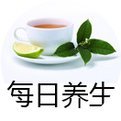Fu Ling (Poria) is a medicinal fungus that grows on the roots of wild pine trees, with its main active components being polysaccharides and triterpenes. In Traditional Chinese Medicine (TCM), Fu Ling has been widely used for various therapeutic purposes since ancient times, possessing significant medicinal value. The efficacy and uses of Fu Ling are primarily reflected in the following aspects:


1. Promotes Diuresis and Drains Dampness: Fu Ling helps the body to promote diuresis and drain dampness, suitable for treating edema and urinary difficulties. It can strengthen the spleen’s transport function and is effective for edema caused by spleen deficiency.
2. Strengthens the Spleen and Benefits the Stomach: Fu Ling is rich in polysaccharides, which can enhance the digestive system’s function and improve the health of the spleen and stomach. It is suitable for symptoms such as loss of appetite, indigestion, and diarrhea caused by spleen and stomach deficiency.
3. Calms the Spirit: Some components in Fu Ling have a calming effect, commonly used to treat palpitations, insomnia, and vivid dreams caused by deficiency of both the heart and spleen.
4. Anti-tumor and Immune-boosting: Modern medical research indicates that the polysaccharides in Fu Ling have certain anti-tumor properties and can enhance the body’s immune function, improving disease resistance.
5. Beauty and Skin Nourishment: Fu Ling is also used in the beauty field, as it can nourish yin and moisturize the skin. Long-term consumption can make the skin delicate and delay aging.
6. Anti-inflammatory Effects: Fu Ling has certain anti-inflammatory properties and can be used to treat inflammatory diseases caused by damp-heat, such as acne and other skin conditions.
In summary, Fu Ling is a natural substance with both dietary and medicinal functions, holding an important position in TCM. Through appropriate combinations with other herbs, it can exert various health and therapeutic effects. However, no medication should be misused, and consultation with a physician is recommended before use to ensure safety and effectiveness.


Contraindications for Fu Ling
However, not everyone is suitable for using Fu Ling. Below are some groups that may need to avoid using Fu Ling:
1. Individuals with Yang Deficiency and Cold-Damp Constitution: Fu Ling is cold in nature, and for those who already have insufficient Yang energy and a cold constitution, excessive consumption may lead to further coldness in the body if there is no significant dampness invasion.
2. Pregnant Women: The use of herbal medicine in pregnant women should always be cautious. Due to the special constitution and needs during pregnancy, any herbs, including Fu Ling, should be avoided without physician guidance.
3. Women with Low Menstrual Flow or Amenorrhea: The diuretic effect of Fu Ling may further reduce bodily fluids, potentially leading to decreased or absent menstruation in women with already irregular menstrual cycles.
4. Individuals with Spleen and Stomach Cold Deficiency: Although Fu Ling has spleen-strengthening properties, its cold nature may cause diarrhea and gastrointestinal discomfort in those with spleen and stomach cold deficiency.
5. Individuals with Low Blood Pressure: Due to the potential of Fu Ling to lower blood pressure, excessive use in patients with low blood pressure may lead to further drops in blood pressure, causing dizziness and fatigue.
6. Patients with Severe Kidney Disease: The diuretic properties of Fu Ling can benefit patients with normal or mild kidney dysfunction, but in cases of severe kidney impairment, indiscriminate diuresis may worsen the kidney burden.
7. Individuals with Allergies: Any medication can potentially cause allergic reactions. Those with known allergies to Fu Ling or similar herbal components should avoid its use.
8. Patients with Chronic Diarrhea: Fu Ling’s diuretic effect may exacerbate diarrhea symptoms, hindering recovery for diarrhea patients.


Consumption Methods for Fu Ling
In daily diet, Fu Ling can also be consumed as an ingredient. Here are several common methods of consuming Fu Ling:
1. Fu Ling Powder: Dried Fu Ling can be ground into fine powder and added directly to porridge or used to prepare beverages. For example, mixing Fu Ling powder with water or milk can provide skin-nourishing effects.
2. Fu Ling Cake: This is a traditional snack made by mixing Fu Ling powder with rice flour in a certain ratio, adding brown or white sugar, and steaming it into a cake. Fu Ling cake is soft, sweet, and has the effect of strengthening the spleen and stopping diarrhea.
3. Fu Ling Soup: Sliced or crushed Fu Ling can be simmered with other ingredients. Common accompaniments include red dates, lotus seeds, and coix seeds, resulting in a nutritious soup that helps strengthen the spleen and eliminate dampness.
4. Fu Ling Porridge: During the cooking of porridge, an appropriate amount of Fu Ling slices can be added and cooked with rice until soft. Ingredients like red dates and yam can be added to enhance the nutritional value and flavor of the porridge.
5. Fu Ling Steamed Egg: Fu Ling powder can be mixed with eggs and an appropriate amount of water, then steamed until the egg mixture solidifies. This method produces a delicious and nourishing Fu Ling steamed egg.
In conclusion, Fu Ling, as a dual-purpose food and medicine, can be easily integrated into daily meals through various cooking methods, allowing one to enjoy delicious food while benefiting from its nourishing and health-promoting properties. Ensure moderation in consumption and consider individual constitution and health status.

